As a construction company, invoicing your clients is a critical aspect of your business operations. An invoice for your construction projects is a document that outlines the details of a project and the amount owed by the client. It serves as a formal request for payment and is essential for keeping track of project expenses and revenue.
A well-crafted invoice is essential for several reasons. Firstly, it ensures that you are paid promptly and accurately for the work that you have completed. It also provides transparency for your clients, allowing them to see exactly what they are paying for and what services they are receiving. This can help build trust and long-term relationships with your clients.
Types of Invoices Used in the Construction Sector
Several different types of construction invoices are commonly used in the industry, including:
- Progress invoices: These invoices are used to request payment for work that has been completed up to a certain point. Progress invoices are typically issued at regular intervals throughout the project, such as monthly or bi-weekly.
- Interim invoices: Interim invoices are similar to progress invoices, but they are issued at specific milestones in the project rather than at regular intervals. For example, an interim invoice might be issued when the foundation of a building is complete, or when the roof is installed.
- Final invoices: Final invoices are issued once the project is complete and all work has been completed. They typically include all of the costs associated with the project, including labor, materials, and any additional charges.
- Retainage invoices: Retainage is a portion of the payment that is held back by the client or project owner until the work is complete. Retainage invoices are used to request payment for the retained amount once the work has been finished.
- Pro forma invoices: Pro forma invoices are issued before work begins and are used to provide an estimate of the costs associated with the project. They are often used to provide clients with an idea of what they can expect to pay before the work begins.
By understanding the different types of construction invoices, contractors and subcontractors can choose the best invoicing method for their specific projects and ensure that they are getting paid accurately and on time.
Essential Information to be Included in Invoice
An invoice should include the following essential information:
- Contact information: The contact information of the contractor or subcontractor, as well as the contact information of the client or project owner, should be included on the invoice.
- Invoice number: Each invoice should have a unique identifier, such as an invoice number, to make it easy to reference and track.
- Date: The date the invoice is issued should be clearly stated.
- Description of services or materials: The invoice should include a description of the services or materials provided, including any specific details or specifications.
- Quantity and price: The quantity of each service or material provided and the price per unit should be clearly stated.
- Total amount due: The total amount owed for the work completed should be clearly stated.
- Payment terms: The payment terms, including the due date and any late fees or penalties, should be clearly stated.
- Tax information: Any applicable taxes or fees should be included on the invoice.
The information provided in the invoice should be clear, concise, and directly to the point to enable the person processing the payment to understand what they are paying for and when, where, or how the payments should be made.
Pro tip 1: It is important to note that since some construction projects, such as carpet and tile installations, generally necessitate an upfront payment, you may be required to produce at least two invoices. One is for the job’s initial deposit, and the other is your final invoice. Consider including all of the work performed in preparing the second invoice, including not just the overall number of carpet modules used, any bleeding-related work, etc.
Steps to Creating a Construction Invoice
Creating an invoice is a critical aspect of running a construction business. It is important to ensure that you are paid promptly and accurately for the work that you have completed. Here is a step-by-step guide to help you create an effective invoice:
Step 1: Start with a template
There are many free invoice templates available online. Choose a template that suits your business needs and customize it as necessary.
Step 2: Include your company information
At the top of the invoice, include your company name, address, and contact information.
Step 3: Include the client’s information
Below your company information, include the client’s name, address, and contact information.
Step 4: Assign an invoice number
Each invoice should have a unique number for tracking purposes. You can assign numbers manually or use invoicing software to automate the process.
Step 5: Provide a detailed description of the services
In the body of the invoice, provide a detailed description of the services that you have provided. This should include the scope of the work, materials used, and any other relevant details.
Step 6: Include payment terms
Clearly state the payment terms, including the due date and the accepted methods of payment. You may also want to include late payment fees or discounts for early payment.
Step 7: Include the total amount due
Provide a breakdown of the total amount due, including any taxes or additional fees.
Step 7: Review and send the invoice
Before sending the invoice, review it carefully to ensure that all information is accurate and complete. Send the invoice to the client via email or mail.
Pro tip 2: If you are working on a flooring project, it is important to note that you may be collaborating with other contractors who specialize in different aspects of the job. A sub-flooring contractor is one such specialist who is responsible for the installation and maintenance of the sub-flooring layer, which provides a stable and level foundation for the finished flooring material. Whether you are the sub-flooring contractor or overseeing the entire project, it is essential to include all of the materials used in the invoice. This includes items such as limestone, granite, cement, and terracotta, among others. By specifying the materials used, you can provide a clear and detailed breakdown of the work completed and ensure accurate billing for all parties involved.
Construction Invoice Template
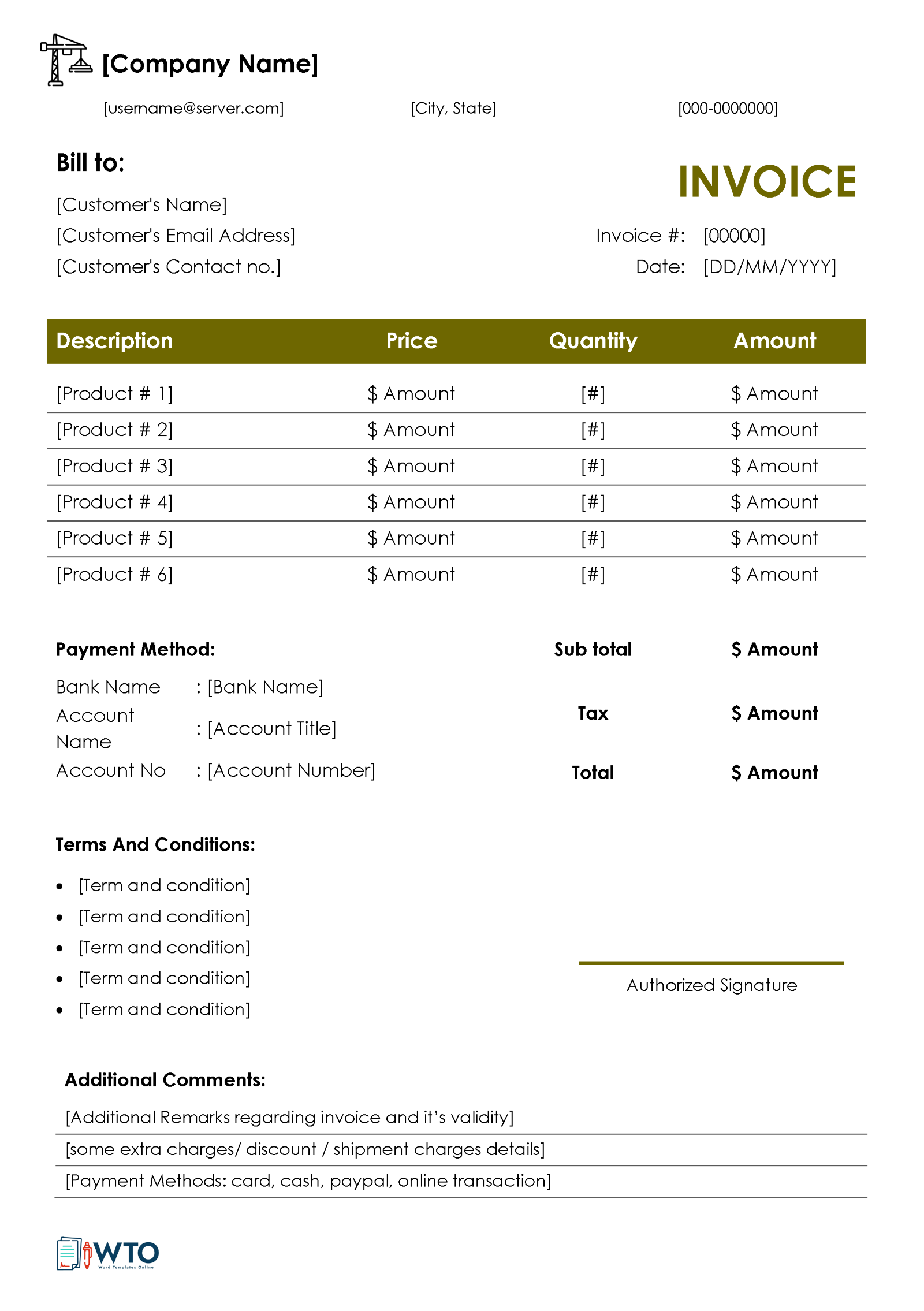
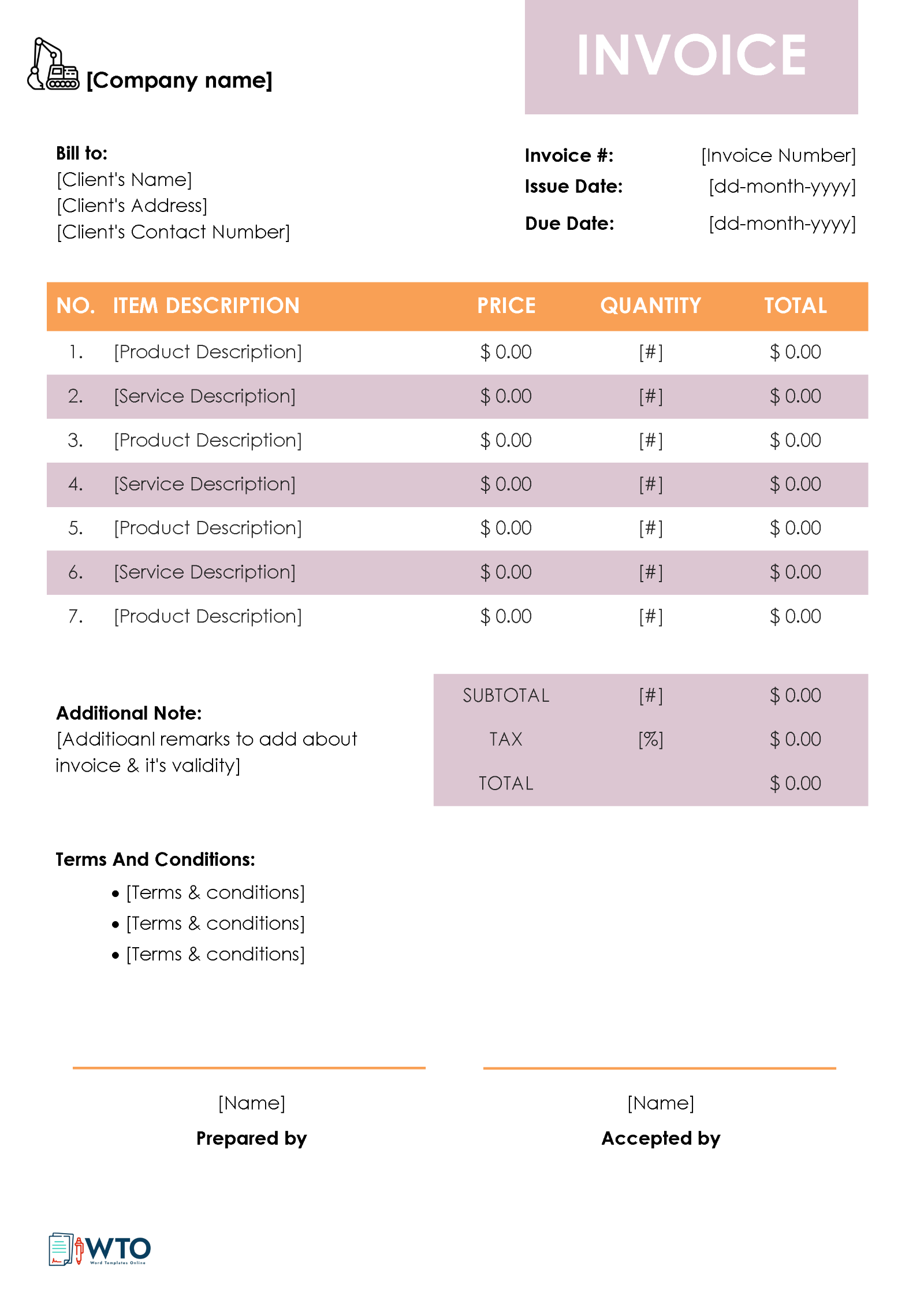
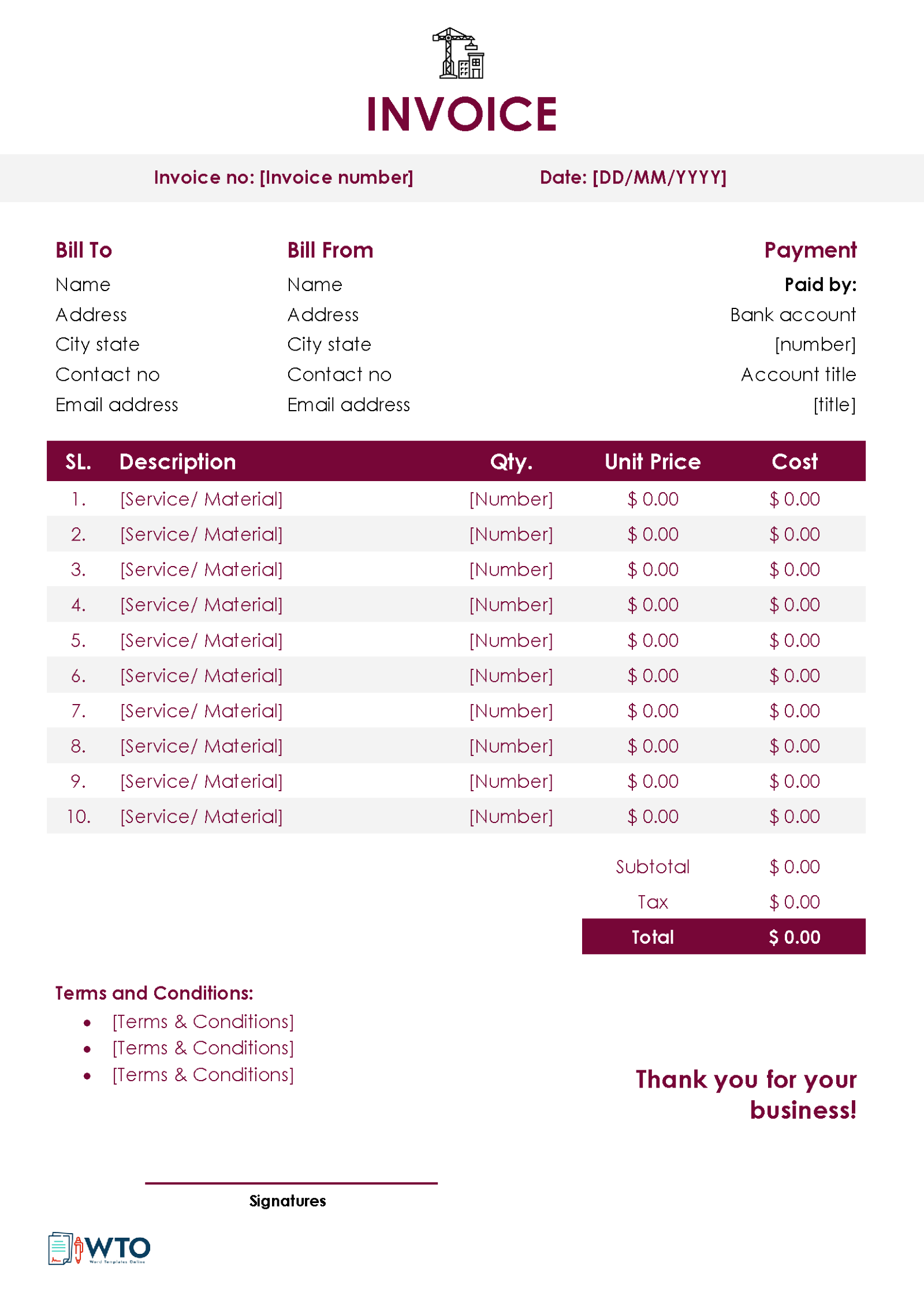
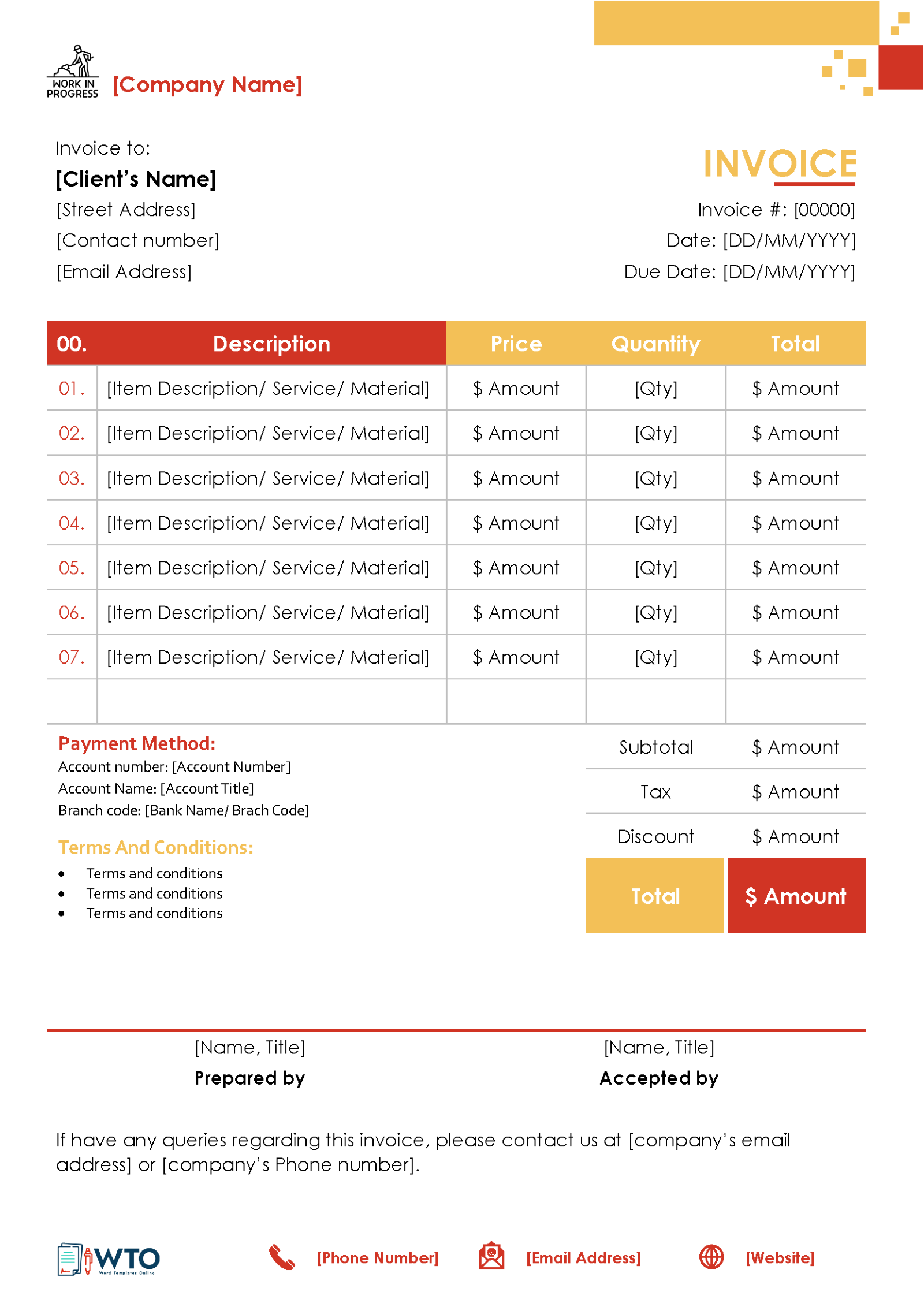
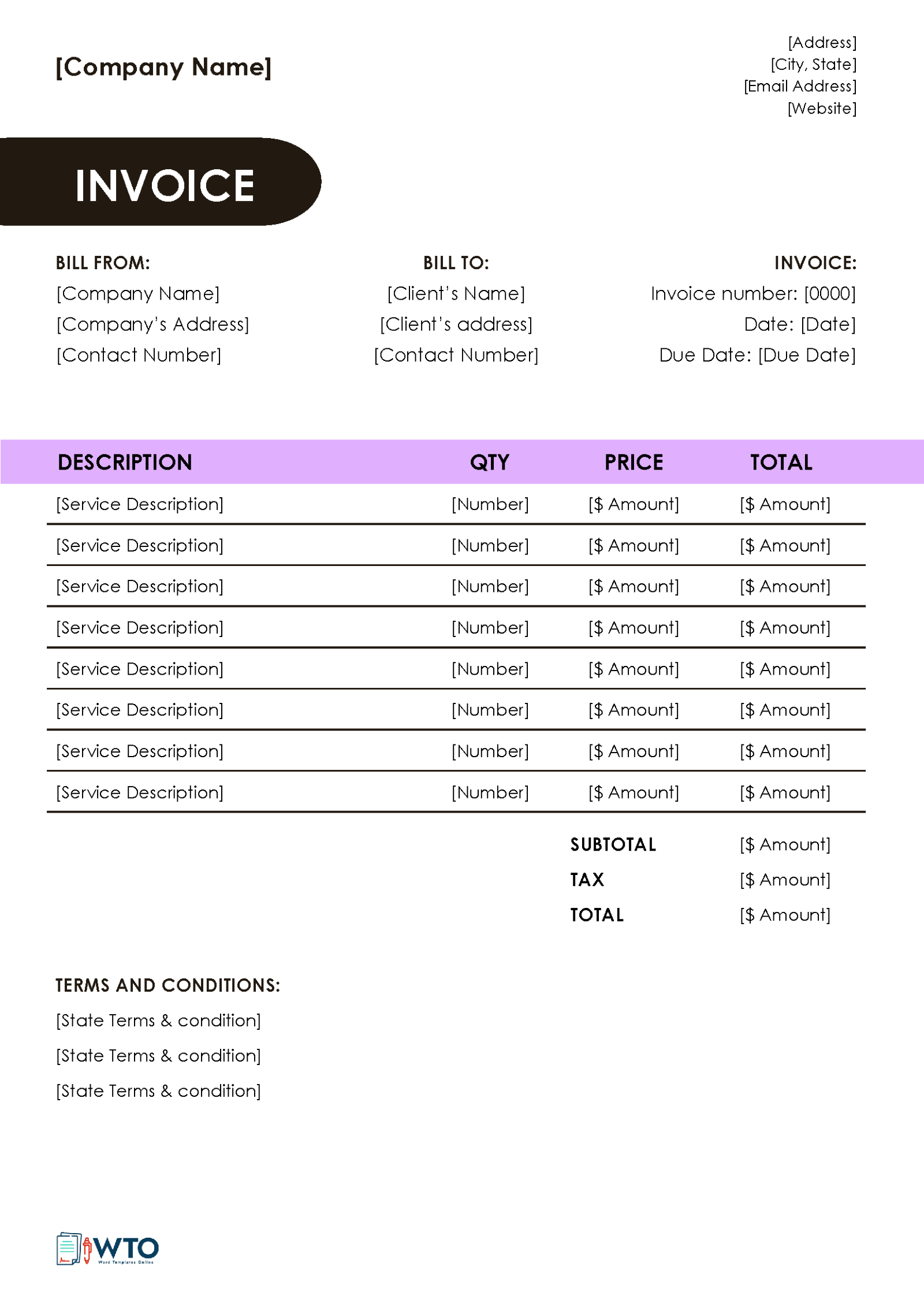
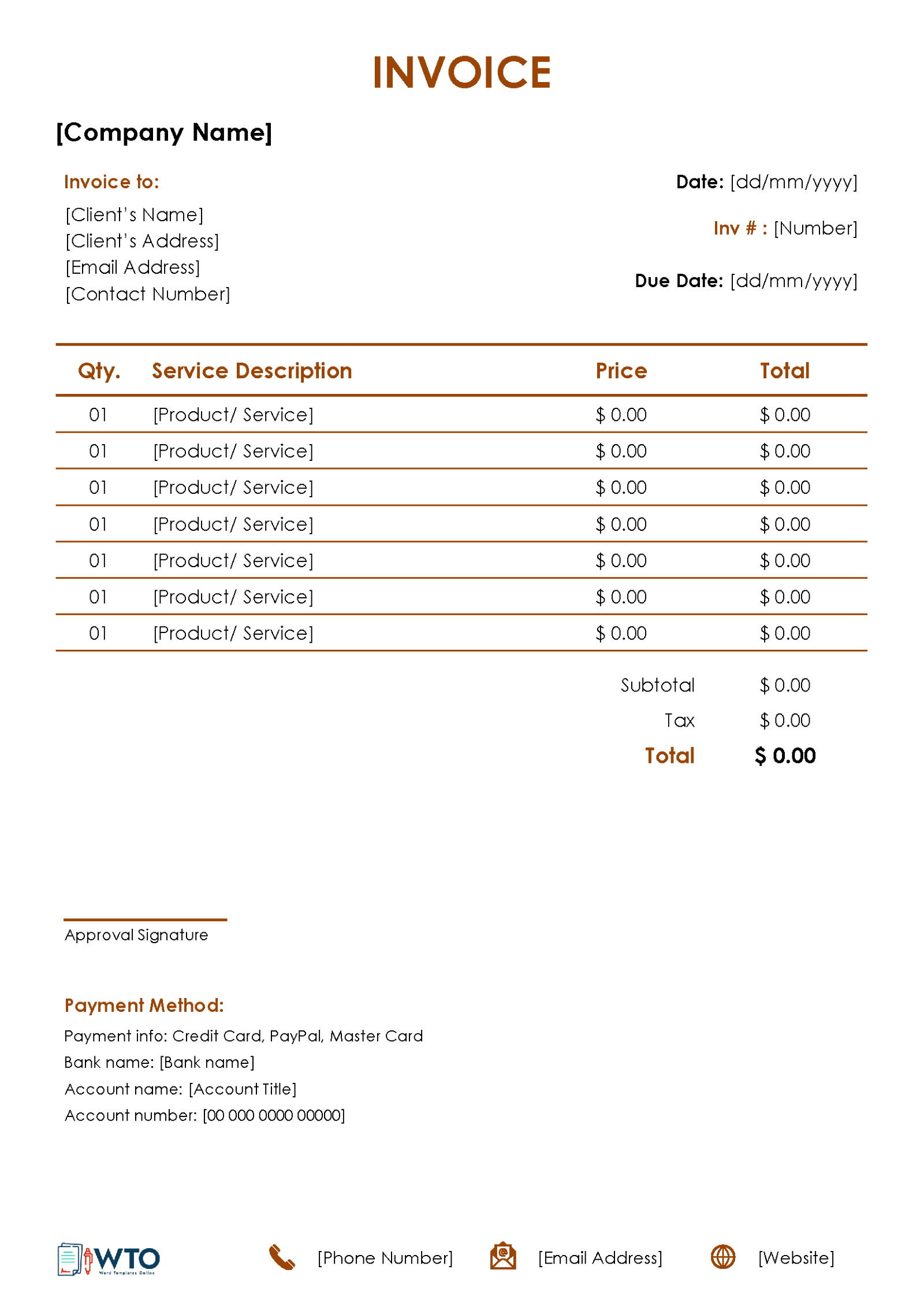
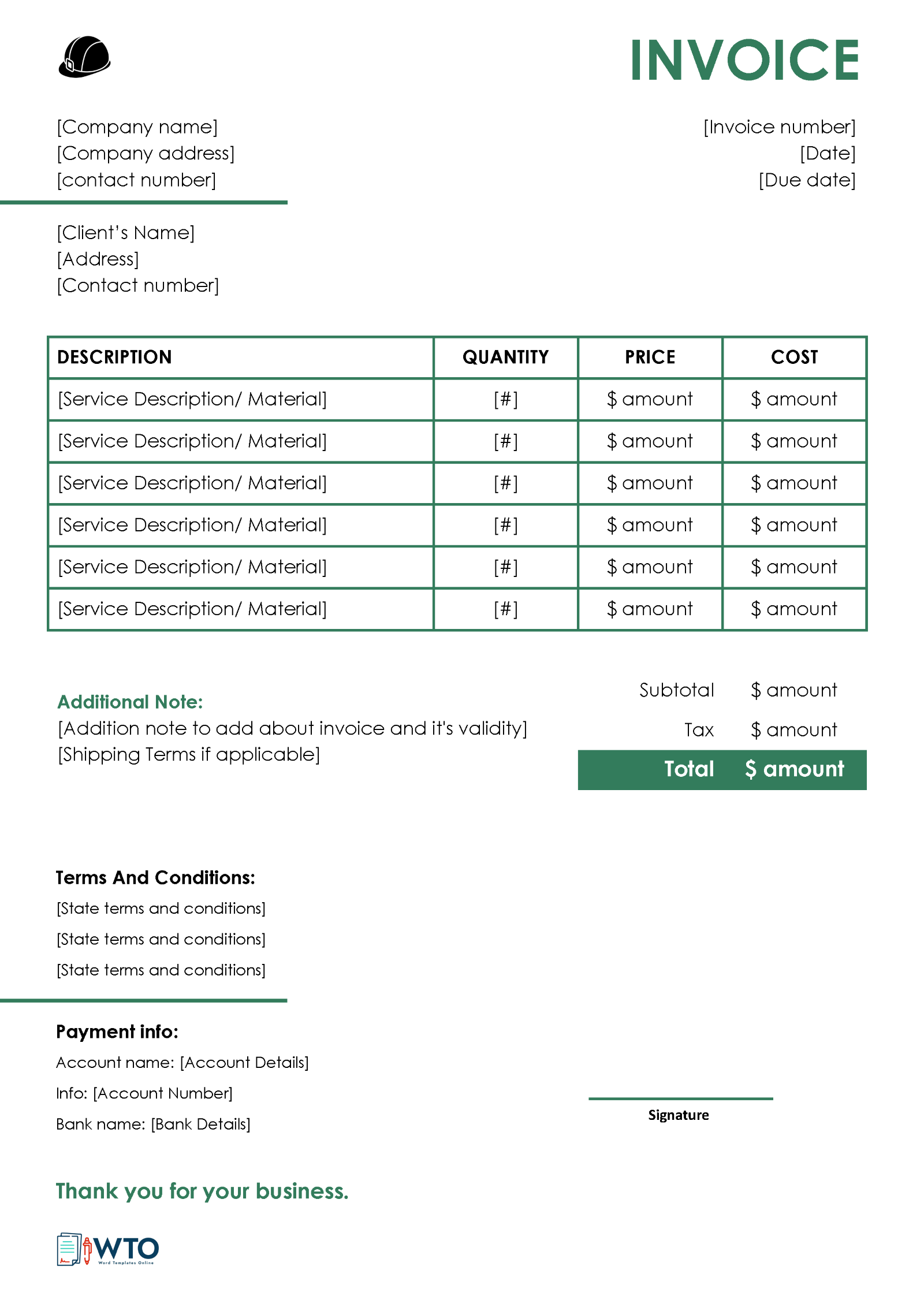
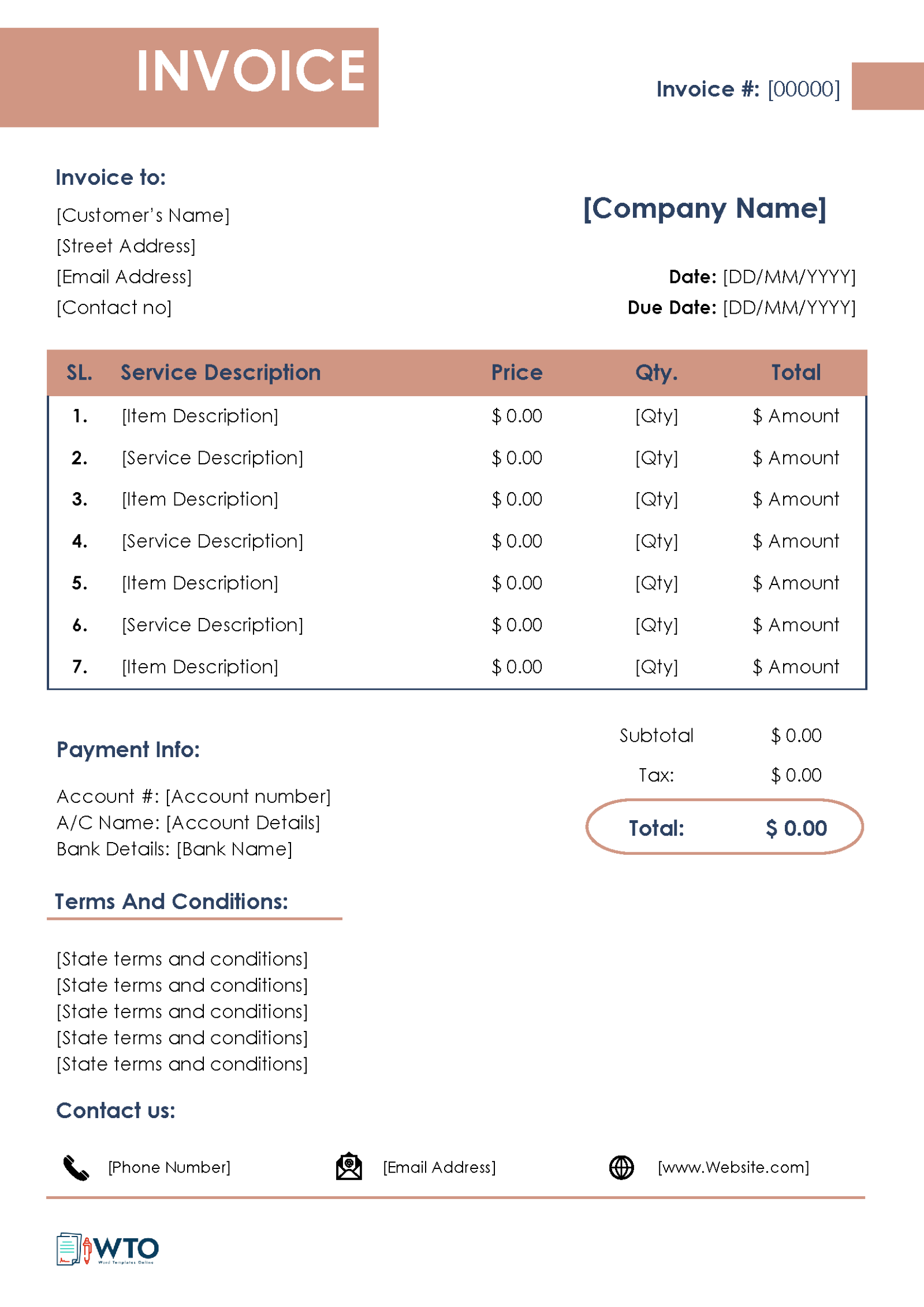
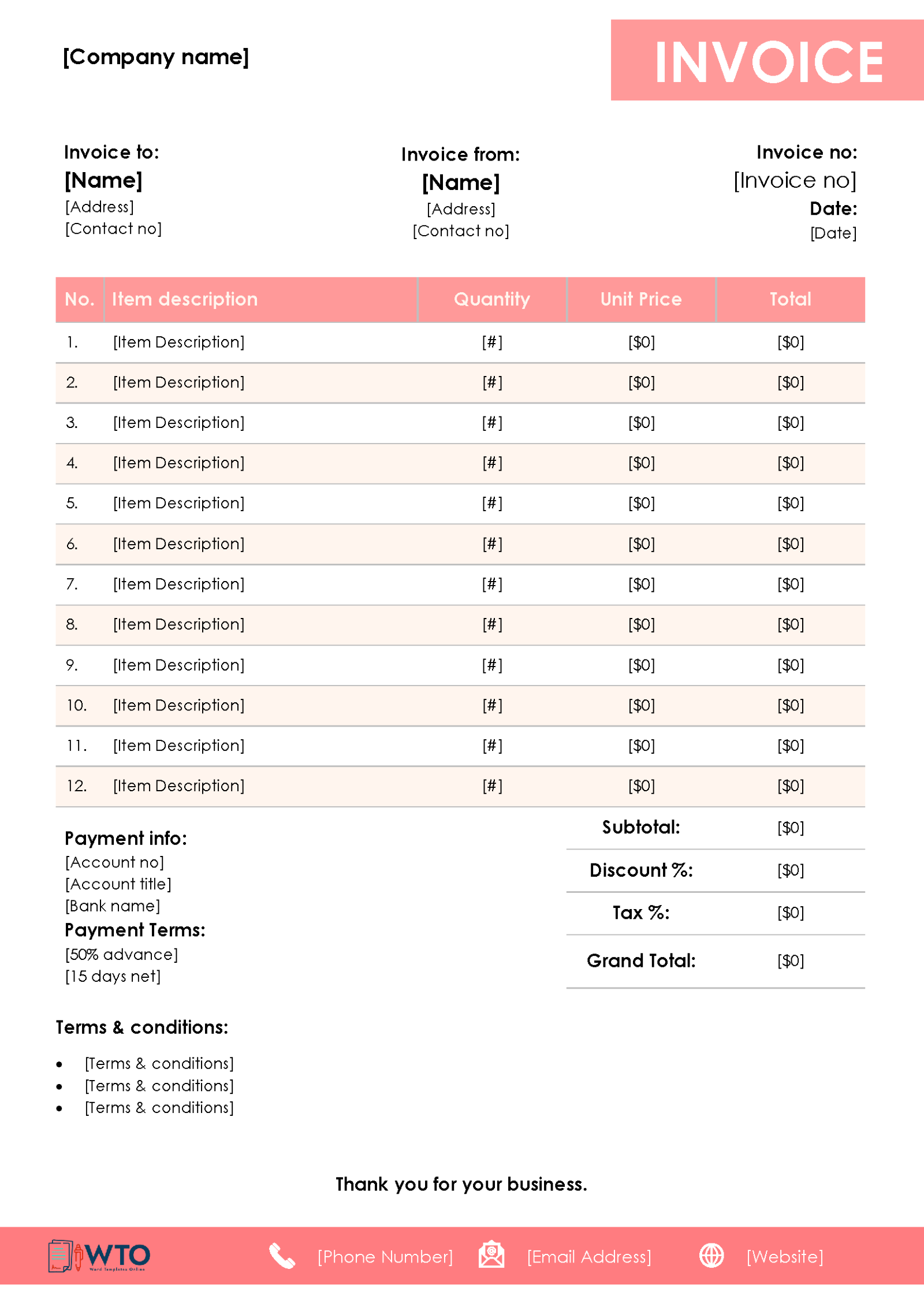
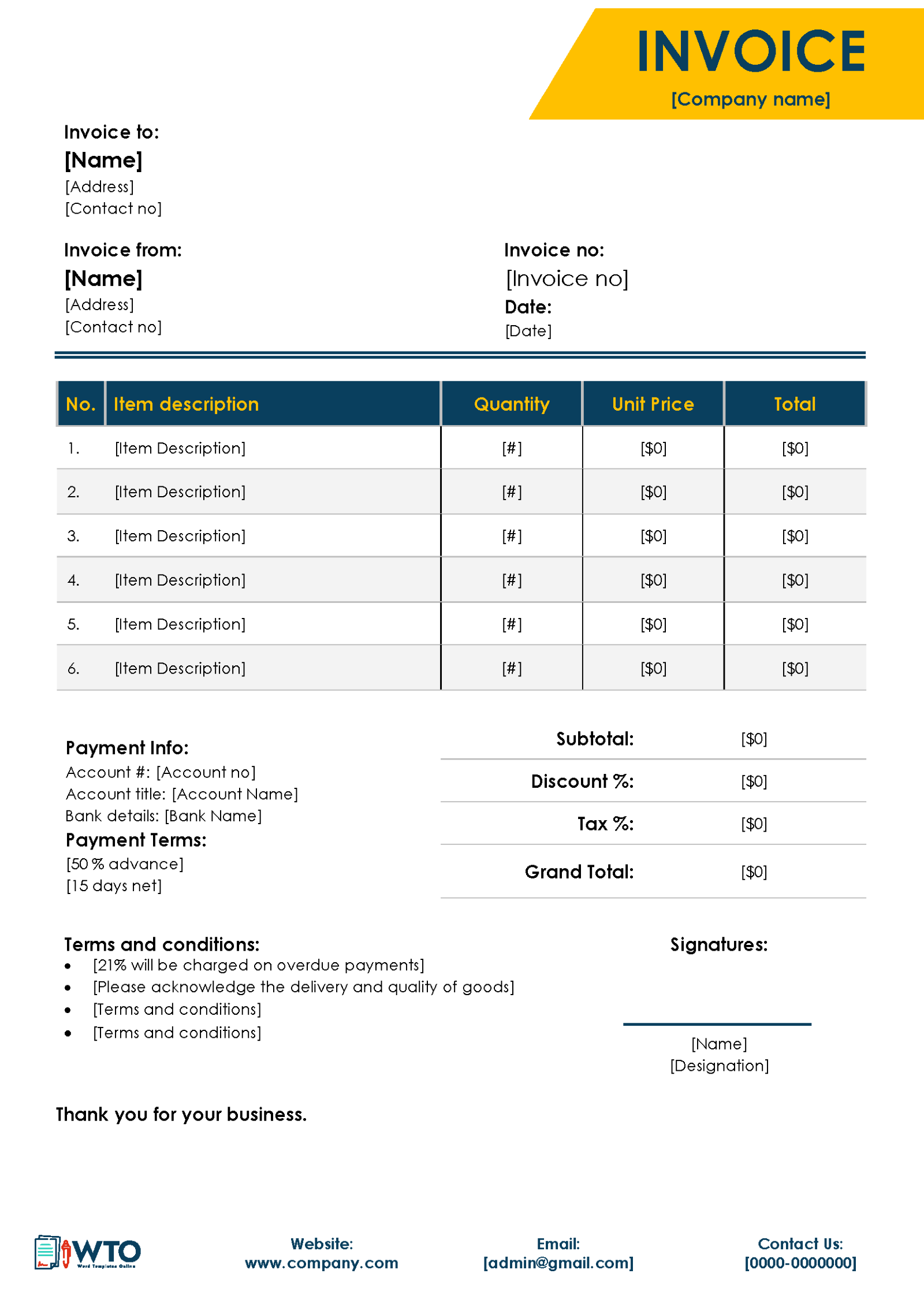
Significance of Accurate Invoicing
Accurate invoicing is a critical aspect of running a successful construction business. Inaccurate invoicing can cause several problems, including delays in payments, disputes with clients, and ultimately, a negative impact on cash flow and profitability.
Here are some reasons why accurate invoicing is important in the construction industry:
Cash flow
Cash flow is the lifeblood of any construction business. Accurate invoicing helps to ensure that payments are made promptly and on time, which is essential for maintaining a healthy cash flow.
Client relationships
Inaccurate invoices can lead to disputes with clients, which can damage relationships and impact future business opportunities. By providing accurate and clear invoices, you can build trust with clients and maintain positive relationships.
Project profitability
Inaccurate invoicing can lead to undercharging for work or failing to account for additional costs. This can impact project profitability and may even result in losses for the business.
Legal compliance
Many jurisdictions have specific invoicing requirements that must be followed by businesses. Accurate invoicing ensures that your business complies with these regulations and avoids any potential legal issues.
Final Remarks
If you work as an independent contractor or own a construction company, you should always make an effort to treat your clients with more professionalism. One way to do this is by using accurate and professional invoices for your services. A template will help you list all the services offered, the resources used, and the labor used to complete the project. It will also help you and your business stay organized, especially when dealing with multiple clients. Therefore, download the given free templates to easily generate professional and consistent invoices for your clients.











